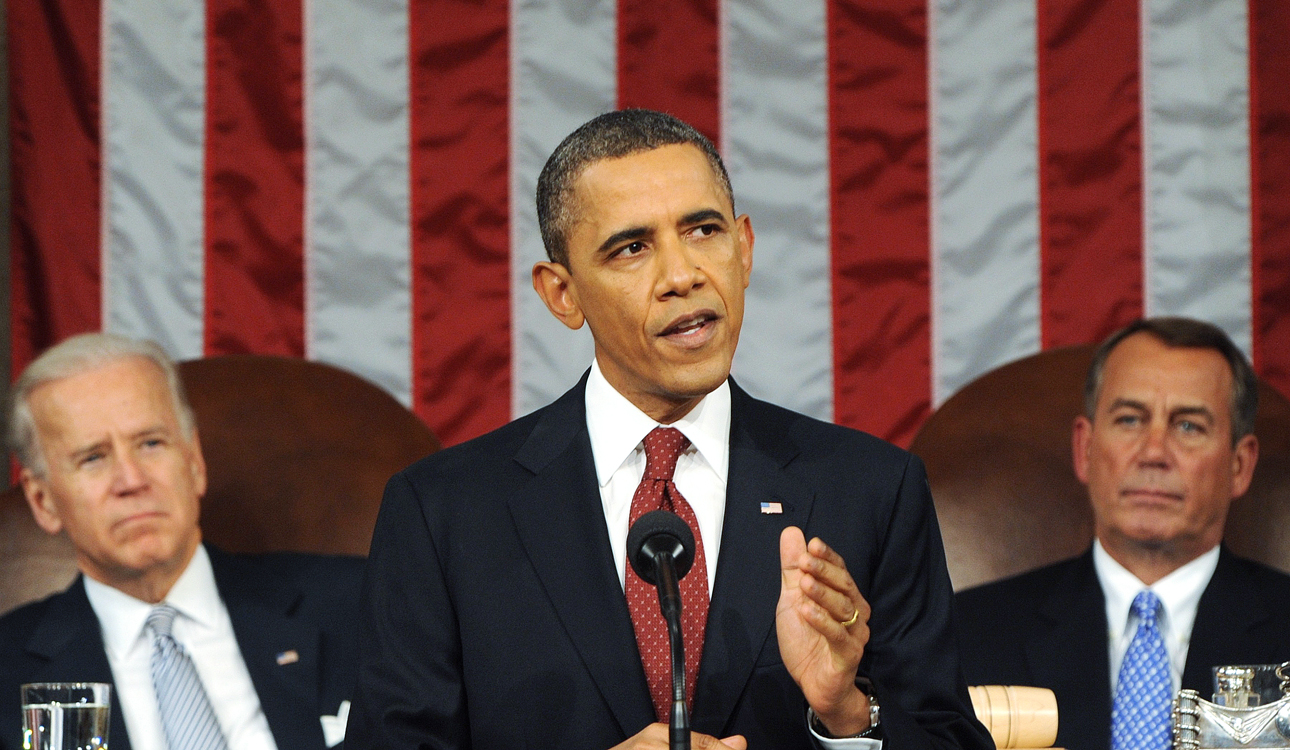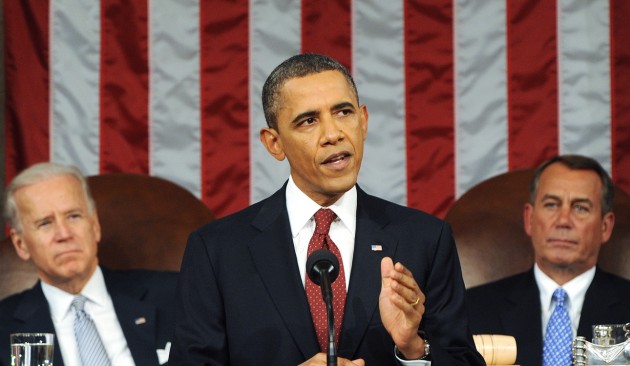

Associated Press
By Daniel Houston
Reporter
In his last State of the Union address before the November elections, President Barack Obama urged members of Congress to pass legislation increasing government expenditures in targeted areas and reforming the federal tax code.
The president said he intends to “fight obstruction with action,” criticizing the Republican-controlled House of Representatives and the Democrat-controlled Senate for not passing more legislation to improve the state of the economy.
This rhetoric about obstructionism will likely become one of Obama’s main lines of attack against the Republican nominee in November, according to political science professor Dr. Curt Nichols.
“He’s trying to set a tone that he’s going to continue … through the election,” Nichols said.
“He came out tonight back to the tone that was successful in getting him elected: more upbeat and urging bipartisanship.”
Although Obama encouraged the federal and state governments to set aside more funding for higher education, he said such measures should ensure that universities work to cut operating costs and lower tuition rates.
“We can’t just keep subsidizing skyrocketing tuition,” Obama said; “we’ll run out of money. States also need to do their part by making higher education a higher priority in their budgets, and colleges and universities have to do their part by working to keep costs down.”
While he didn’t offer a specific education proposal in his speech, Obama said that government funding for institutions of higher learning should decrease for colleges and universities whose tuition rates continue to climb, and increase for others.
Texas Rep. Bill Flores released a statement following the speech criticizing the president’s economic proposals, citing them as the reason why the employment rate rests above 8 percent.
“Tonight during his State of the Union address,” Flores said,” President Obama was unable to defend his disastrous economic record, and instead, attempted to sell another campaign speech filled with more of the same empty rhetoric and unfulfilled promises.”
Flores went on to highlight measures Republicans have taken to address the nation’s economic difficulties, drawing a contrast between them and the president and defending his party colleagues against Obama’s claims they are obstructing recovery.
“House Republicans have continued to pass pro-jobs, pro-growth legislation that addresses the real drivers of our debt and includes fundamental pro-growth tax reform,” Flores said.
On the issue of foreign policy, Obama drew attention to the death of Osama bin Laden and the removal of combat troops from Iraq.
Regarding Iran, he promised his administration would continue to utilize diplomacy and economic sanctions — and, if necessary, harsher measures — to prevent the Iranian regime from obtaining a nuclear weapon.
“Let there be no doubt: America is determined to prevent Iran from getting a nuclear weapon, and I will take no options off the table to achieve that goal,” Obama said.
“But a peaceful resolution of this issue is still possible, and far better, and if Iran changes course and meets its obligations, it can rejoin the community of nations.”
Obama also addressed a subject that has been the subject of the Occupy Wall Street movement: what he referred to as “the corrosive influence of money in politics.”
“Send me a bill that bans insider trading by Members of Congress, and I will sign it tomorrow,” Obama said.
“Let’s limit any elected official from owning stocks in industries they impact. Let’s make sure people who bundle campaign contributions for Congress can’t lobby Congress, and vice versa – an idea that has bipartisan support, at least outside of Washington.”
While Nichols said Obama’s long list of specific actions he would like to see Congress take is typical for modern State of the Union addresses, he said many of these proposals historically have failed to become law.
“No, I don’t think that [recent presidents have] been all that successful in laying out what they want to see done [in the State of the Union],” Nichols said.
“There are exceptions, of course, but the president is laying out a lot of things.”





